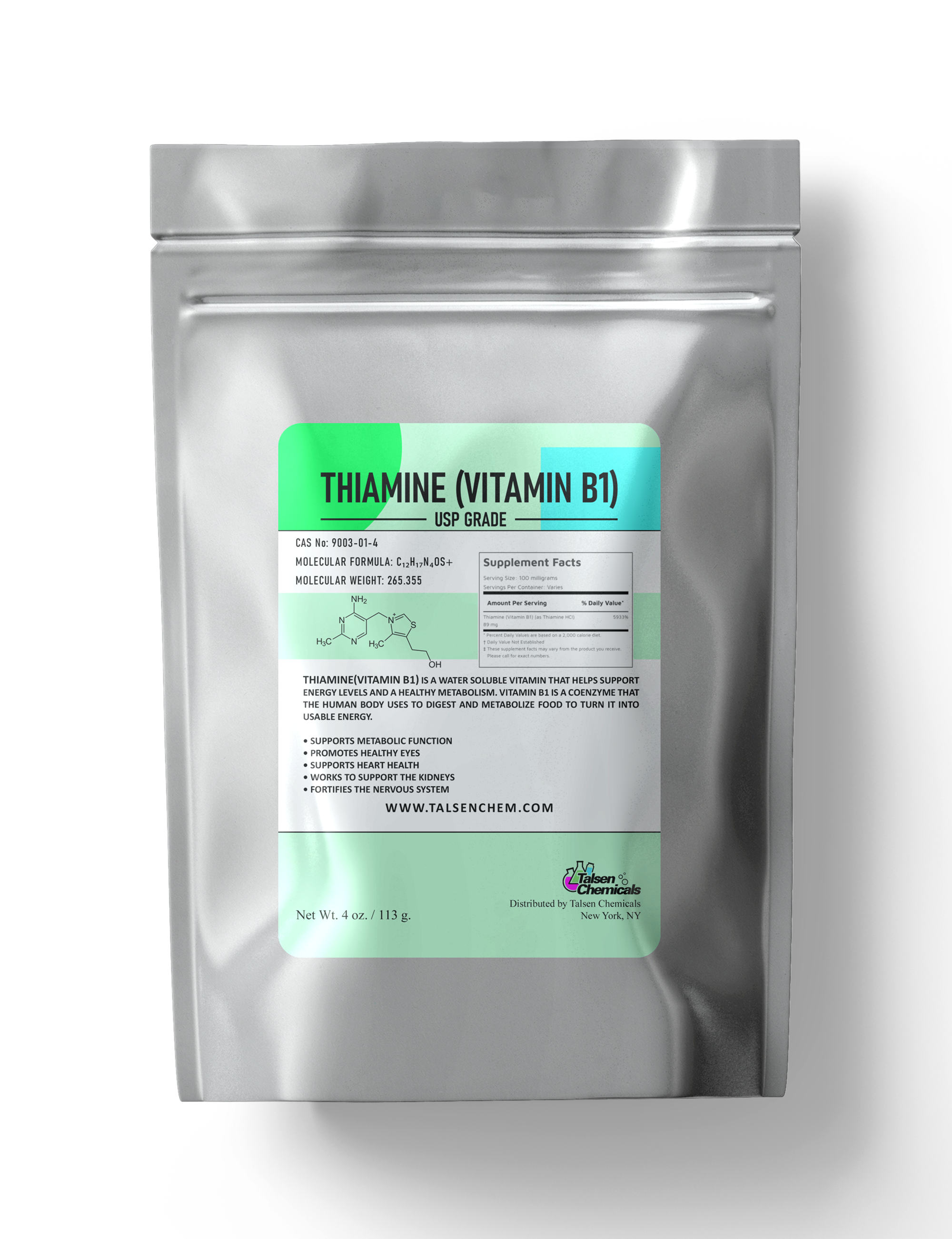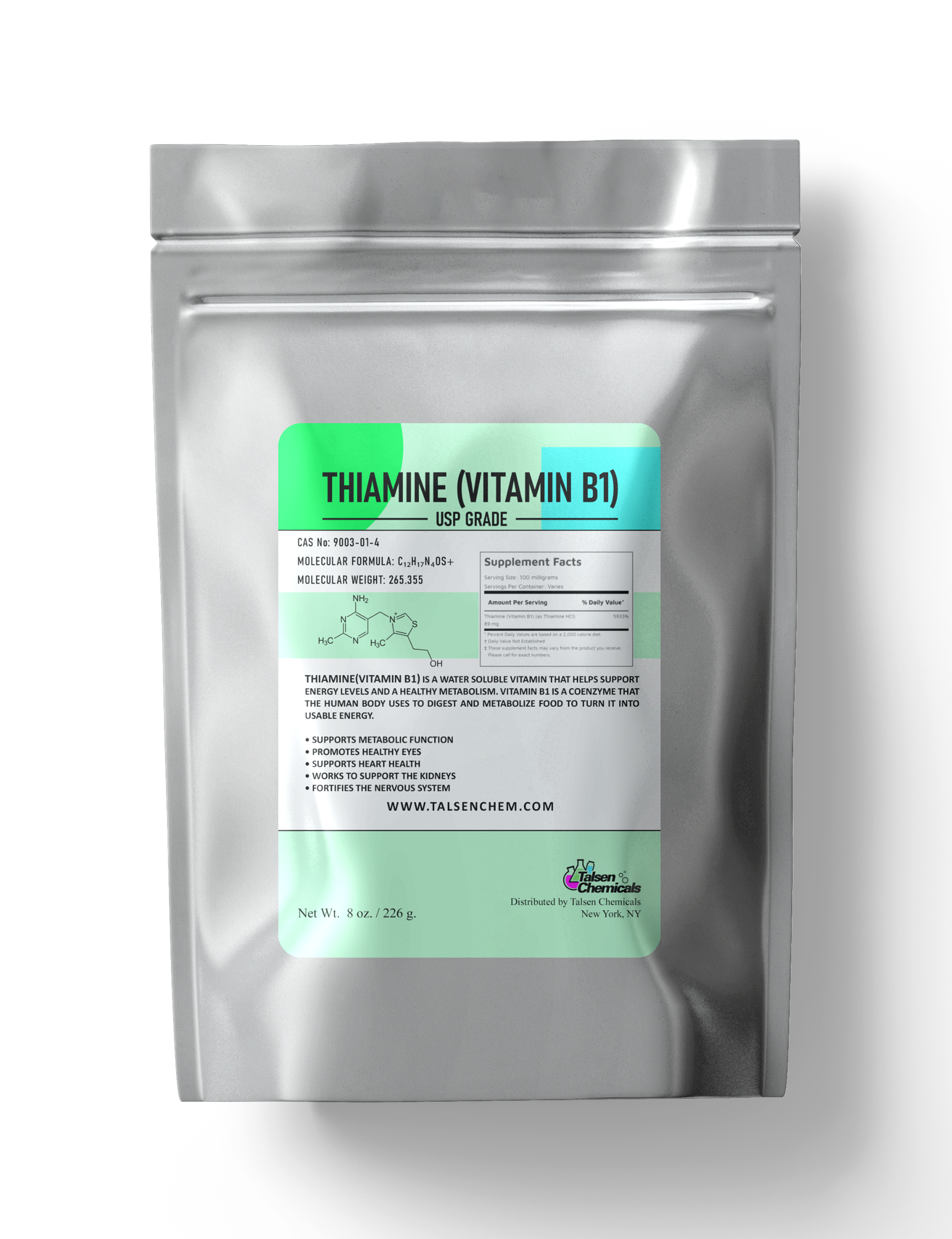Free shipping On All US Orders
CAS: 59-43-8
INCI: Thiamine
Thiamine, also known as Vitamin B1, is a water-soluble vitamin that supports various physiological functions. It plays a key role in energy metabolism by contributing to the conversion of carbohydrates into energy. Thiamine also supports the normal function of the nervous system and the heart.
Naturally present in foods such as whole grains, nuts, and legumes, thiamine can also be consumed as a dietary supplement to help meet daily nutritional needs.
Vitamin B1 contributes to:
Normal energy-yielding metabolism
Normal functioning of the nervous system
Normal heart function
Use:
The Recommended Dietary Allowance (RDA) for adults is 1.2 mg daily for men and 1.1 mg daily for women. For those who are pregnant or lactating, the recommended amount is 1.4 mg daily.
Storage:
Store in a closed container in a dry place at room temperature.
Certificate of Analysis - Material Safety Data Sheet available upon request



